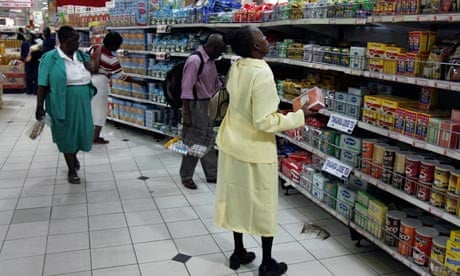93 shops busted for selling underweight goods
NINETY-THREE shops have been prosecuted since January for selling underweight products, as the authorities intensify efforts to curb violations of consumer rights.
The most affected goods include mealie meal, sugar, flour, salt, soya chunks, dried kapenta, in-store bread and sugar beans.
According to the Consumer Protection Commission (CPC), 289 shops have also been fined for various consumer rights violations, while 147 compliance notices have been issued to retailers involved in unethical business practices.
Compliance notices are formal warnings issued to businesses to correct violations within a specified time frame to avoid further legal action.
Responding to questions, CPC research and public affairs manager Mr Kudakwashe Muderere said: “In total, 93 shops were prosecuted for selling underweight products.
In addition, 289 shops were fined from January to date and 147 compliance notices were issued in terms of Sections 10 and 31 of the Consumer Protection Act. Goods most affected are mealie meal, sugar, flour, salt, soya chunks, dried kapenta, in-store bread and sugar beans.”
To address the problem, the commission is engaging manufacturers to ensure their products meet required weight standards, he said.
The CPC has also launched joint operations with other regulators to crack down on underweight and counterfeit products.
Confiscation of illegal goods, continuous market monitoring and consumer education campaigns are also part of the measures being implemented.
A recent market surveillance by the CPC found that illegally imported goods, including soft drinks, detergents and baby formula — some containing harmful substances — have flooded the Zimbabwean market, posing a serious threat to public health and the economy.
The investigation laid bare the alarming prevalence of smuggled products, some believed to be laden with toxic additives, pathogens and spoiled ingredients.
The authorities believe these dangerous goods can cause foodborne illnesses, allergic reactions and long-term health complications.
The influx of such goods into the local market is reportedly being driven by porous borders and a high demand for cheaper alternatives.
Small retail shops in Mbare and downtown Harare, where unscrupulous traders are repackaging substandard goods in misleading packaging to deceive consumers, have been identified as being hubs for counterfeit and fake products.
During the market surveillance blitz, the CPC discovered that low-grade rice is being rebranded as premium Mahatma rice, while counterfeited Mazoe Orange Crush juice smuggled from Zambia is widely available.
Similarly, counterfeit Mama’s tomato sauce has been identified and confiscated in significant quantities.
The CPC also discovered that many products sold in these shops are labelled in foreign languages, leaving consumers without crucial safety or usage information. These practices contravene the country’s consumer protection laws. Sunday Mail




